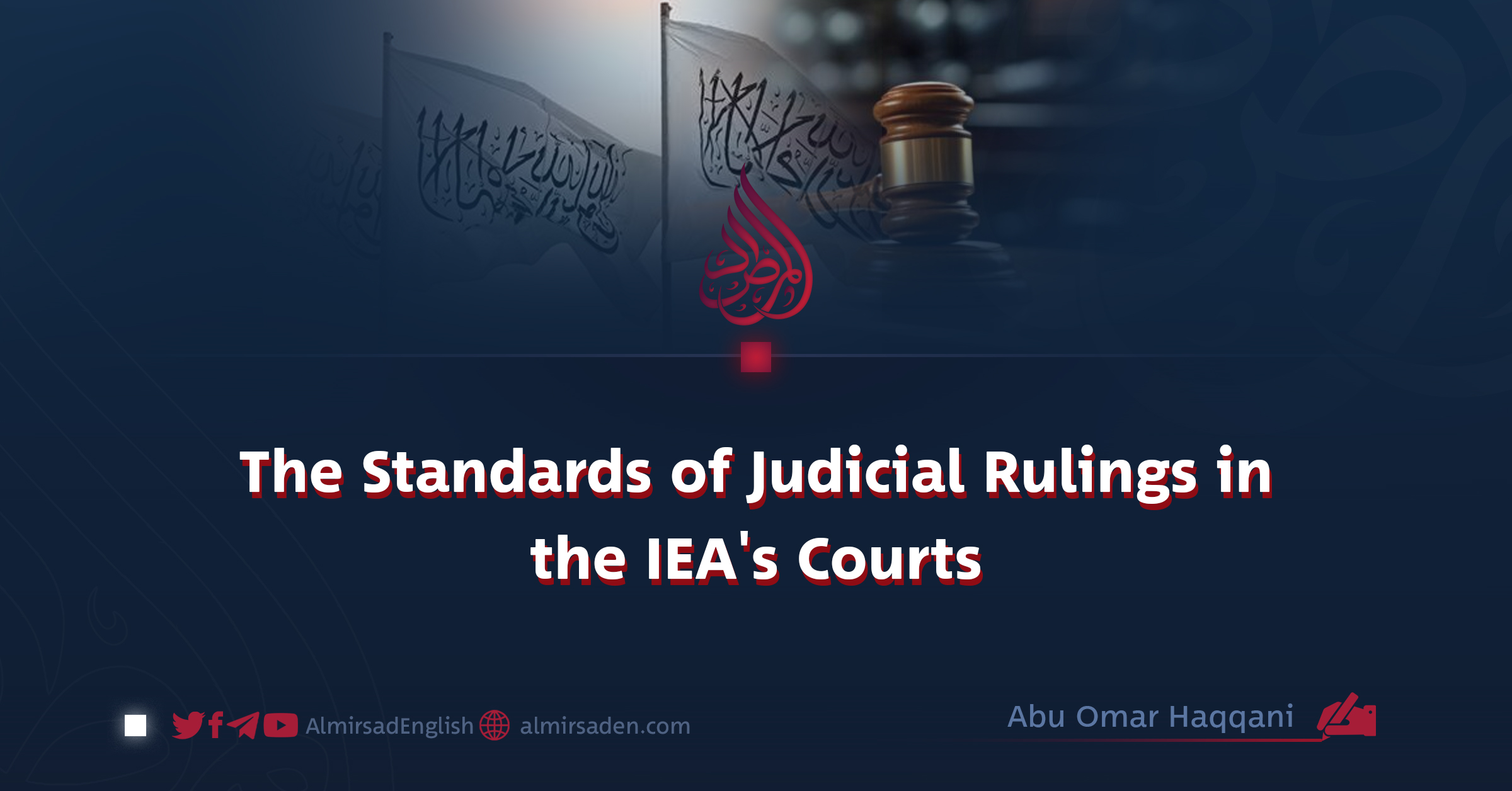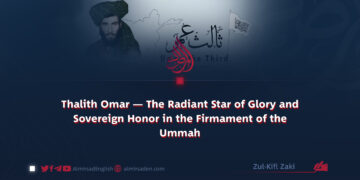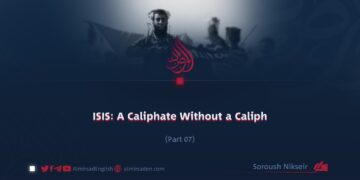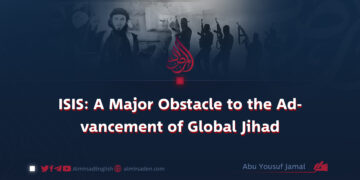Written by: Abu Omar Haqqani
The Islamic Emirate of Afghanistan (IEA) is widely recognized as a comprehensive Islamic system dedicated to implementing governance grounded in the divine guidance of the Quran, the teachings of the Prophet Muhammad (PBUH), and the principles of Hanafi jurisprudence. This system is designed to ensure that all living beings, particularly humans, enjoy their Sharia-given rights securely and justly within its territory.
Praise be to Allah, the IEA has achieved significant success in this endeavor. This marks the second time in Afghanistan’s history that such a system of justice has been established, a period frequently compared by Afghans to the golden age of justice under Umar ibn al-Khattab (RA).
It is clear and evident to all that the establishment of justice and the delivery of rights to their rightful owners are fundamental duties of the judiciary within an Islamic system. In the IEA, the judiciary operates as an independent institution, free from any external influence. Every judge and court member is obligated by the esteemed leader of the IEA, Amir al-Mu’minin (may Allah protect him), to resist any form of direct or indirect pressure and to make decisions with full courage, guided by Islamic principles.
The Basis of Judicial Decisions in the Islamic Emirate of Afghanistan (IEA)
A crucial question arises: What is the standard for judicial decisions in the IEA’s courts?
I am confident that after reviewing the preceding content, the reader will recognize that the establishment of justice akin to the era of Umar ibn al-Khattab (RA) is only achievable when the judiciary adopts Islamic Sharia as the foundational standard for its decisions. To provide further clarity, I will now outline the standards for judicial decisions in the IEA, as unanimously agreed upon by the scholars of Ahl al-Sunnah wal-Jama’ah.
1. The Holy Qur’an
The Quran serves as the primary and foremost source of guidance for the Islamic Emirate’s judiciary. Judges, muftis, and other judicial officials are obligated to examine cases brought before them to determine whether a clear ruling exists in the Quran. If such a ruling is found, the case must be decided in accordance with it.
For instance, the Quran provides explicit rulings on major crimes such as murder, adultery, theft, and false accusation (qadhf). When such cases are presented to the courts of the IEA, they are adjudicated in accordance with these Quranic injunctions.
Allah Almighty is the Creator and the Sustainer of all creation, and therefore, all authority belongs to Him alone. The Quran states:
« ألا له الخلق والأمر»[سورت الأعراف:۵۴]
Translation:
“Unquestionably, His is the creation and the command.” [Surah Al-A’raf: 54]
Furthermore, no one besides Allah (SWT) has the right to legislate or judge in contradiction to His commands. Allah, the Exalted, says:
«إِنِ الْحُكْمُ إِلَّا لِلَّهِ»[سورت الانعام:۵۷]
Translation:
“The decision is only for Allah.” [Surah Al-An’am: 57]
It is obligatory for all individuals to follow Allah’s commands and accept His decrees, as He alone is fully aware of the welfare and weaknesses of His servants. Thus, the Qur’an serves as the primary source and reference for law and the judiciary in the Islamic Emirate.
Therefore, the primary source for law and the judiciary is Allah’s commands. Since the prophets act as intermediaries between the Creator and His servants in conveying His commands, their words are also regarded as proof and evidence in religion.
2. Prophetic Hadiths:
If a ruling is not explicitly found in the Quran, the judiciary turns to the Prophetic Hadith for guidance. Judicial officials examine the matter in light of authentic Hadiths and issue rulings based on them.
For instance, while the Quran prescribes the punishment for theft, stating that the hand of the thief should be cut off, it does not specify the minimum value of stolen property that warrants this punishment. This detail is provided in the Hadith.
The Hadiths of the Messenger of Allah (peace be upon him) themselves are Sharia evidence, as every word he spoke was based on divine revelation. Allah says about him:
«وَمَا يَنطِقُ عَنِ ٱلۡهَوَىٰٓ(۵) إِنۡ هُوَ إِلَّا وَحۡيࣱ يُوحَىٰ »[سورت النجم:۴]
Translation: “Nor does he speak from [his own] inclination. It is not but a revelation revealed.” [Surah An-Najm: 3-4]
Similarly, in a narration from Umm Salamah (RA), it is mentioned that the Prophet (PBUH) said to two individuals who came to him regarding an inheritance dispute where some evidence was unclear:
“If a matter is brought before me regarding which nothing has been revealed to me, I will judge it based on my own opinion.” (Narrated by Abu Dawood)
3. Ijma (Consensus of Scholars)
Consensus is another core principle in the decisions of the Islamic Emirate’s courts. When a matter has been thoroughly examined by the courts and no ruling is found in the Holy Quran or Prophetic Hadith, the responsible authorities address these issues through consensus. Consensus refers to the unanimous agreement of the scholars of the Islamic Ummah on a particular issue.
A Hadith from Abdullah ibn Mas’ud (RA) supports this approach:
“If a case is presented to someone for judgment, he should judge based on the Quran. If it is not found in the Quran, he should refer to the Sunnah of the Prophet (PBUH). If it is not found in the Sunnah, he should refer to the decisions of the righteous predecessors (Salaf). If no precedent is found, he should exercise its own Ijtihad (independent reasoning).” (Narrated by Al-Hakim in Al-Mustadrak)
4. Qīyās (Analogical Reasoning)
The fourth principle in the judicial system of the Islamic Emirate is Qiyās (analogical reasoning). This method is applied when a new case arises for which no explicit ruling is found in the Qur’an, Hadith, or Ijma (scholarly consensus).
Linguistically, Qiyas means “measurement” or “comparison.” In legal terminology, it refers to extending the ruling of an original case to a new case based on a shared underlying cause (‘illah). This method ensures that Islamic law remains applicable to emerging issues while staying rooted in divine guidance.
The validity of Qiyas is affirmed in both the Qur’an and Hadith. For example, the Qur’an states:
إنَّ مَثَلَ عِيسَى عِنْدَ اللَّهِ كَمَثَلِ آدَمَ خَلَقَهُ مِنْ تُرَابٍ ثُمَّ قَالَ لَهُ كُنْ فَيَكُونُ. (الایة)
“Indeed, the example of Jesus to Allah is like that of Adam. He created him from dust; then He said to him, ‘Be,’ and he was.”
(Surah Aal-e-Imran: 59)
ولو ردوه إلى الرسول وإلى أولي الأمر منهم لعلمه الذين يستنبطونه منهم. (الایة)
“And when there comes to them information about [public] security or fear, they spread it around. But if they had referred it back to the Messenger or to those of authority among them,…”
(Surah An-Nisa: 83)
A Hadith from Mu’adh ibn Jabal (RA) further supports the use of Qiyas. When the Prophet (PBUH) sent him to Yemen, he asked:
“When a case is presented to you, how will you judge?”
Mu’adh replied: “By the Book of Allah.”
The Prophet (PBUH) asked: “If you do not find the ruling in the Book of Allah?”
Mu’adh said: “Then by the Sunnah of the Messenger of Allah.”
The Prophet (PBUH) asked again: “What if you do not find it in the Sunnah?”
Mu’adh responded: “Then I will exercise my opinion and I will not be negligent with it (Ijtihad).”
The Messenger of Allah (PBUH) then patted him on the breast and said: “All praise is due to Allah, Who has guided the envoy of His Messenger to that which pleases His Messenger.” Narrated by Sunan Abu Dawud)
In summary, the judicial decisions of the IEA are based on the principles of Islamic Sharia, as derived from the Qur’an, Hadith, Ijma, and Qiyas. These standards ensure that justice is administered in accordance with the teachings of Islam, providing a framework that safeguards the rights of all individuals within the IEA.
May Allah (SWT) grant success to all those who strive for justice. Ameen.


















































